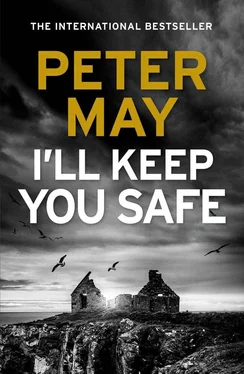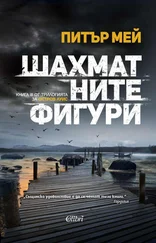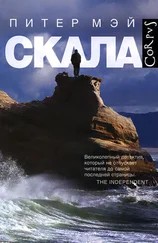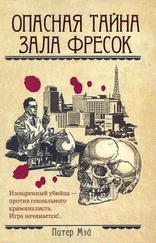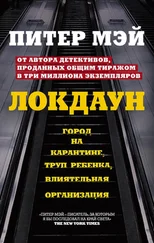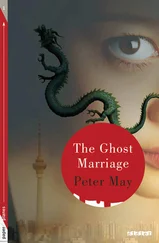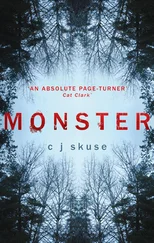‘Nothing changes, does it?’ Uilleam said.
‘That’s what I love about this place,’ Niamh told him. ‘The world changes around us like a silent movie on speed, but the islands never do. They’re the one constant in my life.’ She glanced at him across the Jeep. ‘Must be a while since you were last here.’
She thought he looked fleetingly uncomfortable, but she had to turn away to focus on the road. ‘I was back seeing the folks earlier this month.’
‘Really? She turned her head again in surprise. ‘They never mentioned it.’
‘Probably thought you wouldn’t be interested.’ He could never resist the barb.
She said, ‘Maybe they know me too well.’ And she could tell from the colour that rose on his cheeks that her reciprocal retort had not missed its mark. Then immediately she regretted it. He was her brother, for God’s sake! Why did it always have to be like this?
They drove on into the rain as it swept west across the moor, past the shieling with the green roof that sat away off to their right. Then up over the rise, and a misted view through the cloud and rain to the distant ocean washing up at Rubh’ a’ Bhiogair beyond Barvas itself.
As they turned off towards Bru, Uilleam said, ‘I’m only here for you, you know.’
‘Mum told me.’ Niamh paused. ‘I’m to be grateful, I suppose?’
He bristled. ‘I’m not going to the funeral.’
‘Then you’re not here for me. If you were, you would.’
‘Mum and Dad aren’t going either.’
She turned her head towards him sharply. ‘Really? They told you that?’
He nodded.
‘Well, it’s more than they’ve told me.’
‘You can’t be surprised.’
‘Surprised isn’t the word I would use, Uilleam. Hurt, maybe. Betrayed.’ She tried to control her voice. ‘I’m their daughter. Your sister. I just lost the man I loved and you’re all still so eaten up by your misplaced hatred of him that you won’t even stand by my side when we put him in the ground.’
‘He killed our brother.’ His voice was screwed tight by sanctimonious certainty.
‘No!’ Niamh almost shouted. ‘You killed Anndra. You!’
‘For God’s sake, Niamh!’
‘Oh, don’t give me all that self-righteous innocence!’ She almost spat it in his face, then had to swerve to stay on the road. ‘You know it was your fault. It’s the elephant that’s always been in the room. The thing that none of us ever wanted to say out loud, because who could deal with the thought that it was your stupidity that caused the death of your own brother.’
‘That’s not true,’ he barked back at her.
‘Yes it is. Yes. It. Is. If you hadn’t gone and kicked that ball into the sea like some spoilt thirteen-year-old adolescent, then challenged Ruairidh to go get it, none of it would have happened. None of it. “Any decent swimmer could go and get it.” Remember that? You can’t tell me that you haven’t spent every minute of every day since regretting it. Somewhere deep inside you that you won’t admit. Because I wouldn’t believe you. Ruairidh was just the scapegoat for your guilt. Someone else to blame. Mum and Dad did it, too. I mean, how in God’s name could they ever have dealt with the thought that one of their own children was responsible for the death of another? Much easier to turn grief into hatred and direct it all at Ruairidh.’
There. She had said it, and it could never be taken back. All the things she had kept pent up inside her for all these years. Perhaps it had always been understood. Felt. Perceived. But it had never been given voice. And now that it was out, it didn’t make her feel any better, as she had always thought it might. The overwhelming feeling was one of emptiness. She had drained the boil, but the pain remained.
There was no comeback from Uilleam. No denial, no justification, not even an expression of the hurt he must have felt. Just silence. A silence that stretched out like the road ahead of them.
A road that took them past Arnol, with its ruined blackhouse village. Past Bragar, the jaws of an eighty-foot whale mounted in an arch above a gate. Past the mill and the school at Shawbost. Past the turn-off to Dalmore Beach where the innocence of childhood had come to an end, and the deceptions, jealousies and hatreds of adulthood had taken root.
Not a word passed between them during all that long drive down the west coast. Nothing more to be said.
As they turned down towards the bridge at Balanish the Free Church tower rose high above the village rooftops, and all the memories of what had been a happy childhood up until that fateful day on Dalmore Beach came flooding back. Niamh felt silent tears rolling down her cheeks.
Past the war monument, where Anndra and Uilleam had once tied her to the railings and left her there until their father passed in the car on his way home from work. Past the road that led down to the pier, from which the three of them had often set out in the family dinghy to catch fish, or simply lie bobbing and basking in the sun of a warm summer’s day. Past the community hall where Niamh had first danced with Ruairidh. Past the croft where a tup had broken free of the sheep fank and knocked Anndra over, breaking his arm, as he tried to herd it back in.
All those memories, both sweet and sour, invested in one place and time. A place which had once been home and felt alien now, unwelcoming.
Niamh drew the Jeep to a halt at the road end above the Murray croft and Uilleam got out to retrieve his case from the back. He hesitated before walking down to the house. ‘Are you coming in?’
Niamh shook her head. ‘No,’ she said, in what was little more than a whisper. She wound up the window and turned the car in the road, before heading back the way they had come, without so much as a glance in the rearview mirror.
It was a long, lonely drive north to Ness in the rain. A road with many faces revealed in different weathers and seasons. This face set now in stone, gloomy and hard, its lack of light reflected in the darkness of Niamh’s heart.
She drove fast, breaking the speed limit through all the deserted villages that streamed past her window. Shadar, Borve, Mealabost. Galson. She saw not one single person, and passed only a handful of other vehicles on the road. The landmark that was the Free Church at Cross emerged, wraithlike, from the rain and mist, and she swung off on to the Skigersta Road. Past the Cross Stores where Ruairidh used to buy their marag dhubh . The best black pudding on Lewis, he used to say, an assertion frequently disputed over a dram at MacNeill’s in Stornoway, where Charley Barley was the preferred maker of the famous blood sausage.
Her blackest moment came after crossing the northern tip of the island to Skigersta and turning south on the track to Taigh ’an Fiosaich. The rain blew almost horizontally across the moor and the road ahead became as fogged and obscure as her own future. A future that, suddenly, she could no longer face. A future that seemed pointless without the man she loved. A future estranged from her own family, at odds with her oldest friend. A future that, simply, did not seem worth living. She had never felt as low in her whole life.
Then something strangely magical happened. Those rainclouds driven in from the west by strong autumn winds began to lift and break, and the sunshine that slanted low across the land from behind them formed a rainbow almost directly ahead of her, straddling the road. An archway to a future perhaps less bleak than her heart in its darkness had foreseen. The tiniest chink of light bringing hope to the blackest of places. And quite unaccountably, she felt her spirits lift.
Her Jeep bumped and lurched its way past the shielings at Cuishader, up and over the hill to the long vista that would lead her down eventually to the safety of what, for all its emptiness, was still her home. And as she rounded the bend at Bilascleiter, she was startled to see a vehicle parked at the back of the house. The curve of its roof caught and flashed in the sunlight that crept all across the land now in the wake of the rain.
Читать дальше
